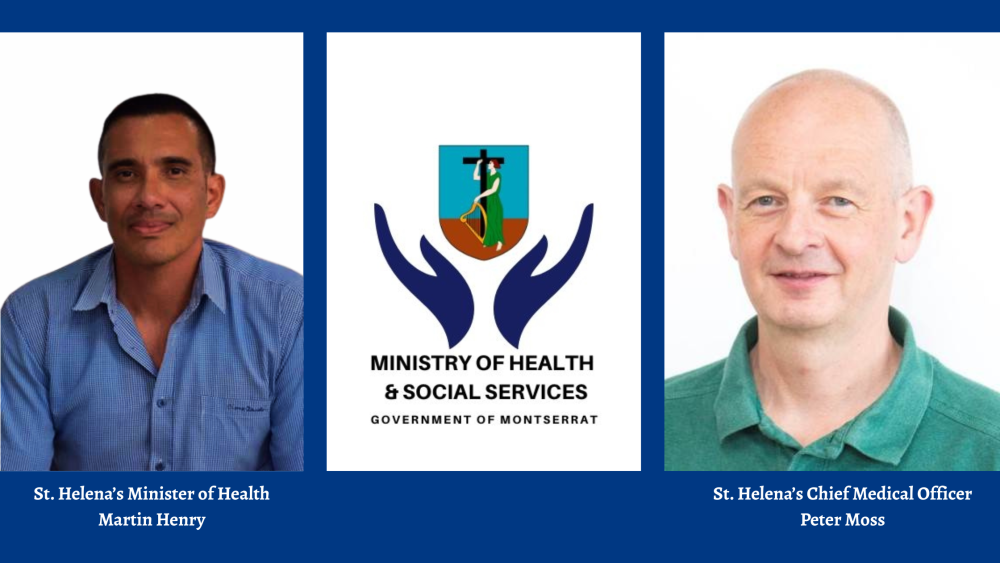The Ninety-Eighth Meeting of the Monetary Council of the Eastern Caribbean Central Bank (ECCB) was held on 12 February 2021, via videoconference, under the Chairmanship of Dr. the Honourable Timothy Harris, Prime Minister and Minister for Finance, Saint Christopher (St Kitts) and Nevis.
Watch the Presentation here –> https://fb.watch/3CvX6yYuh8/
1.0 Monetary Stability
The Monetary Council received the Governor’s Report on Monetary, Credit and Financial Conditions in the Eastern Caribbean Currency Union (ECCU) for the period January to December 2020.
The Council was apprised of the following:
a. The COVID-19 pandemic continues to impede global economic activity. Following a sharp rebound in global economic activity during the second half of 2020, global growth had once again slowed due to a resurgence in COVID-19 cases.
b. According to the IMF’s January 2021 World Economic Outlook (WEO), the global economy is projected to grow by 5.5 percent in 2021 following an estimated decline of 3.5 percent in 2020.
c. The COVID-19 pandemic posed substantial economic and health related challenges to the ECCU in 2020. The ECCU economy is estimated to have contracted by 15.0 per cent compared to a projected pre-pandemic expansion of 3.2 percent. Tourism, the region’s dominant export is estimated to have declined by 75.0 per cent. The ECCU economy is projected to grow by 4.0 per cent in 2021.
d. Monetary and financial conditions were generally stable. However, domestic monetary and credit conditions deteriorated in 2020 relative to 2019, due to shutdowns and related economic fallout of the COVID-19 pandemic.
e. Domestic credit is estimated to have contracted in 2020, relative to the previous year.
f. Amid the challenging economic environment, the Currency Union experienced an expansion in its foreign reserve portfolio in 2020. However, the Backing Ratio declined, on account of, an increase in credit to member governments. The Backing Ratio as of 5 February 2021 was 96.2 per cent, well in excess of the statutory requirement of 60.0 per cent.
g. The economic outlook for the region is uncertain. The recent spike in the number of confirmed COVID-19 cases in key source markets and some member countries is undermining the prospects for recovery of Tourism and growth in the ECCU. That said, the rollout of vaccines in these source markets and the arrival of vaccines in the ECCU member countries is a positive development.
Having considered the Governor’s Report on Monetary, Credit and Financial Conditions in the ECCU, the Council decided to:
a. Maintain the Minimum Saving Rate at 2.0 per cent; and
b. Maintain the Discount Rate at 2.0 per cent (short-term credit);
c. Temporarily reduce the interest rate for long-term credit to 3.5 per cent from 6.5 percent.
2.0 Financial Stability
The Council was advised that overall, the financial sector in the ECCU remained stable in 2020, despite the pandemic and the subsequent economic contraction.
To date, none of the Licensed Financial Institutions (LFIs) operating in the ECCU has requested liquidity support from the ECCB.
Over the five quarters ended 30 September 2020, there was an upward trend in Non-Performing Loans (NPLs) culminating with an ECCU average of 11.2 per cent.
It is anticipated that the NPL ratio will increase when the current loan moratorium expires in September 2021.
As at 30 November 2020, commercial banks were providing deferral on 16,834 loans with a total outstanding balance of $4.3b, which represents 32.0 per cent of total loans.
3.0 Fiscal and Debt Sustainability
Fiscal conditions across the ECCU deteriorated in 2020 as Governments experienced a sharp decline in revenue, while simultaneously spending significant sums on COVID-19 related expenditure, to protect lives and support livelihoods.
Up to September 2020, the aggregate overall fiscal deficit was EC$261.0m compared with a deficit of EC$135.0m in the same period of 2019. Total revenue collections across the region declined by EC$777.0m while expenditure fell by EC$671.0m.
The performance of the Regional Government Securities Market (RGSM) remains relatively stable as member governments continue to meet debt service obligations and actively access the market to raise funds to support economic activity. Last year, ECCU governments raised $1.1 billion on the RGSM, a contraction of 15.7 per cent compared to 2019.
4.0 Proposal for the Adjustment of the Fiscal Anchor
In 2003, the Monetary Council introduced simplified fiscal benchmarks to guide the fiscal operations of ECCU countries. The key benchmark (fiscal anchor) was the achievement of a 60.0 per cent Debt to GDP target by 2020. The fiscal target was intended to facilitate fiscal credibility, transparency and accountability.
In February 2015, the Monetary Council extended the original target to 2030 in the face of the prolonged recession in the ECCU following the Global Financial Crisis.
In the face of the largest growth shock, on record, occasioned by the COVID-19 pandemic, the Monetary Council considered the ECCB’s recommendation to adjust the date for attainment of a Debt to GDP Ratio of 60.0 percent. The Council, therefore, approved the extension of the target date from 2030 to 2035.
Given the ECCU’s vulnerability to external shocks, member countries are encouraged to enact fiscal responsibility or fiscal resilience frameworks to support their fiscal efforts in the post-pandemic period.
The Council made a clarion call for the promotion, adoption and application of an appropriate Vulnerability Index for Small States in consideration of their debt dynamics and for their access to concessional financing.
4.0 The Optimal Regulatory Framework for the Financial Sector of the ECCU
Notwithstanding, improvements in regulation and supervision by the ECCB and national financial regulators, in recent years, the Monetary Council was reminded that the ECCU financial system is supervised by multiple supervisory agencies.
Consequently, there is no single regulatory agency with oversight of the entire financial system. Furthermore, the legislative framework to support supervisory practices in the ECCU is outdated relative to innovations in some areas of the financial system. The current situation creates opportunities for regulatory arbitrage.
In light of this, the Council deliberated on a paper styled the Optimal Regulatory Framework in the ECCU and after careful consideration, agreed to rescind the decision to establish the Eastern Caribbean Financial Services Regulatory Commission (ECFSRC).
Instead, the Council agreed to recommend to member governments:
a. The adoption of an Enhanced Regulatory and Supervisory Approach (ERSA) based on retention of roles of the existing regulators and the addition of a Regional Standards Setting Body for regional and national financial regulators;
b. The establishment of a Regional Standards Setting Body for the ECCU;
c. The approval of governance of arrangements for the Regional Standards Setting Body similar to what obtains for the Eastern Caribbean Securities Regulatory Commission (ECSRC) which, though based on the ECCB Campus, is operationally independent and is overseen by Board of Commissioners separate and apart from the ECCB Board of Directors.
5.0 Report from the Technical Core Committee on Insurance British American Insurance Company (BAICO) Resolution
The Council received an update from the BAICO Judicial Manager and noted that efforts were being made to make an additional payment to policyholders.
Colonial Life Insurance Company (CLICO) Resolution
The Council agreed on further engagement with the Government of Barbados in respect of the pension fund arrangements.
The Council was apprised of pending litigation on the CLICO matter.
6.0 Report on the Eastern Caribbean Partial Credit Guarantee Corporation (ECPCGC)
The Council received an update on the operations of the Eastern Caribbean Partial Credit Guarantee Corporation (ECPCGC), which was launched on 5 October 2020.
The Council noted that seven commercial banks from five countries have been admitted to the programme and are now participating lenders. Other banks will be on-boarded soon. The Council also welcomed the Board of Directors’ approval to admit credit unions and development banks to the programme.
7.0 Date and Venue of 99th Meeting of the Monetary Council
The Council agreed that the 99th Meeting of the Monetary Council will convene on Friday, 23 July 2021 via videoconference. The meeting will be preceded by the Ceremony to Mark the Change in Chairmanship of the Monetary Council which will be transmitted from the ECCB Headquarters in Saint Christopher (St Kitts) and Nevis.
8.0 Participation
The following Council Members participated in the meeting:
1. Dr the Honourable Timothy Harris, Prime Minister and Minister for Finance, Saint Christopher (St Kitts) and Nevis – (Chairman)
2. The Honourable Dr Ellis Lorenzo Webster, Premier and Minister for Finance, Anguilla
3. The Honourable Roosevelt Skerrit, Prime Minister and Minister for Finance, the Commonwealth of Dominica
4. The Honourable Gregory Bowen, Minister for Finance, Grenada
5. The Honourable Easton Taylor-Farrell, Premier and Minister for Finance, Montserrat
6. The Honourable Allen Chastanet, Prime Minister and Minister for Finance, Saint Lucia
7. The Honourable Camillo Gonsalves, Minister for Finance, Saint Vincent and the Grenadines
8. The Honourable Lennox Weston, Minister of State in the Ministry of Finance and Council Alternate, Antigua and Barbuda.
Discover more from Discover Montserrat
Subscribe to get the latest posts sent to your email.



